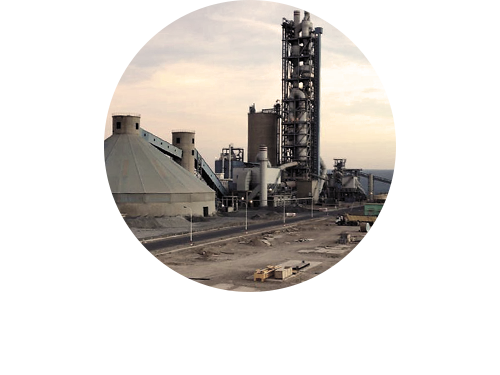Social and economic development is transforming The Republic of The Sudan, providing a much-needed boost to industries in the construction sector. This considered, there is now a growing demand for the cement needed to complete building projects. As a result, its manufacture and supply has built a booming industry for the country, with production undertaken by both the private sector and foreign investors.
Sudan is also well placed to make Portland cement – the most common type, because of the abundance of essential raw materials such as limestone, a key ingredient in the manufacture of the binding substance and one of the country’s natural resources. To meet the construction sector’s growing demand for the product, the cement plant outside of Berber was redeveloped in order to increase production on site.
A complete life safety system
Located outside of Berber town center, it was essential that the factory was upgraded with a full range of life safety solutions to ensure that workers were protected from any fire risks. The plant is home to a significant amount of machinery which can increase the risk of these hazards, therefore, to guarantee worker protection and avoid interruption to production, a Hochiki addressable system was installed.
The HFP system is an extremely versatile, complete life safety system which incorporated a range of control panels, extinguishant panels, smoke sensors, call points, heat sensors and speakers – covering all of the plant’s fire detection requirements.
The range is fully compliant to world-recognised standards and includes a high-performance chamber which allows for adjustable sensitivity settings, reducing the likelihood of false alarms and any unnecessary ceasing of production.
Derek Waddell, Technical Sales Manager at Hochiki Europe said:
“In sites like the Berber cement factory it is extremely important to reduce the probability of false alarms to ensure that production goes undisturbed. This is why Hochiki systems were the perfect choice for this project as they are produced to meet the demands of the world’s industrial sector.”
Project challenges
However, the installation of the system in the upgraded factory was not without its challenges. For suppliers, this was only the second time installing the system in a power plant, and this factor coupled with the hot and dusty environment meant that the project was a complex one. The plant is also located in a remote part of Sudan, an hour outside of the nearest city and several hours from Khartoum, meaning installers faced long journeys while working on the project, meaning that complications during the project needed to be minimised.
Environmental considerations
When choosing the system, the developers had to take into consideration Sudan’s dusty climate, coupled with the dust produced on site at the cement plant, and install products that could be quickly fitted to withstand these challenging conditions. Typically, dust can often cause severe interference to devices and result in false alarms being raised or device malfunction. However, Hochiki life safety solutions have a high tolerance to extreme dust and heat conditions – making the manufacturer a preferred supplier in Sudan and the perfect choice for this project.
Hisham Abuzeid, Manager at Sorouh Advanced Works, Hochiki’s partner in the Sudan region said:
“We recommended the Hochiki HFP system for the cement factory because of its versatility and reliability. The system features solutions that are perfect for demanding environments – making it the best choice of solution for the environmental conditions at the plant.
“Since the completion of the redeveloped plant, the customer has told us that there hasn’t been a single false alarm on site. They have also been extremely impressed with how user-friendly the interface and language of the panels are, as they are very easy to deal with for people unfamiliar with this sort of technology.”
Click here for more information about Hochiki Europe’s HFP range.


